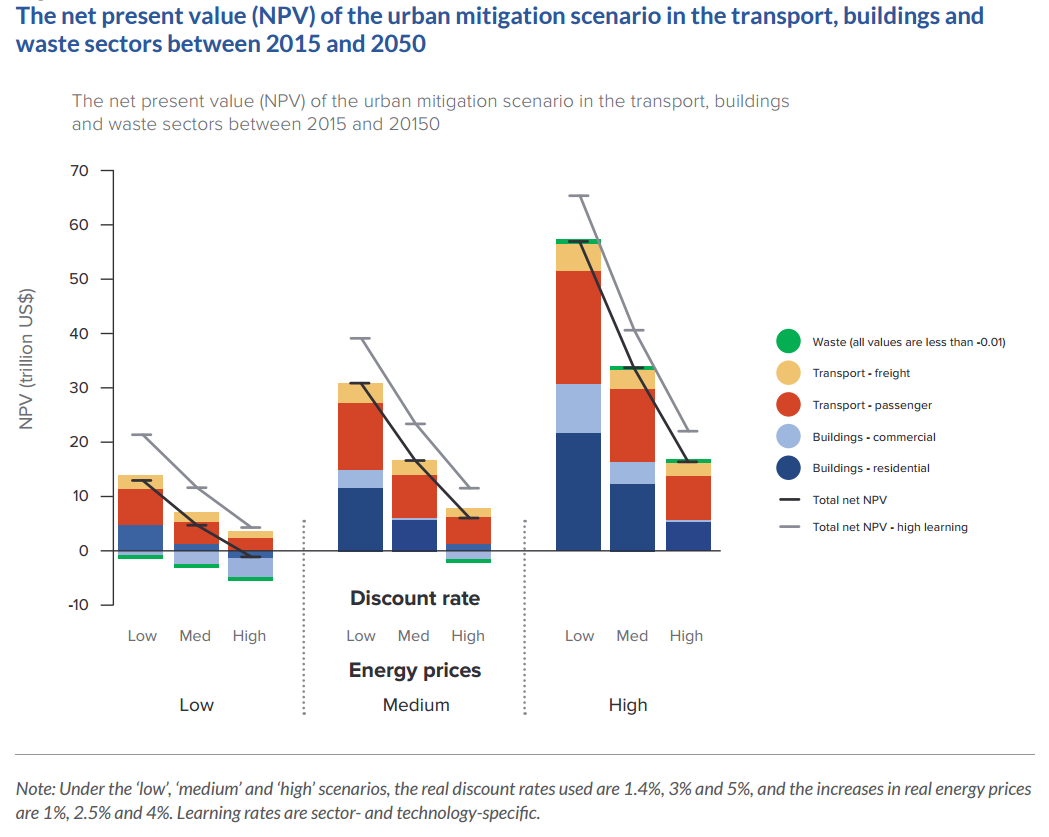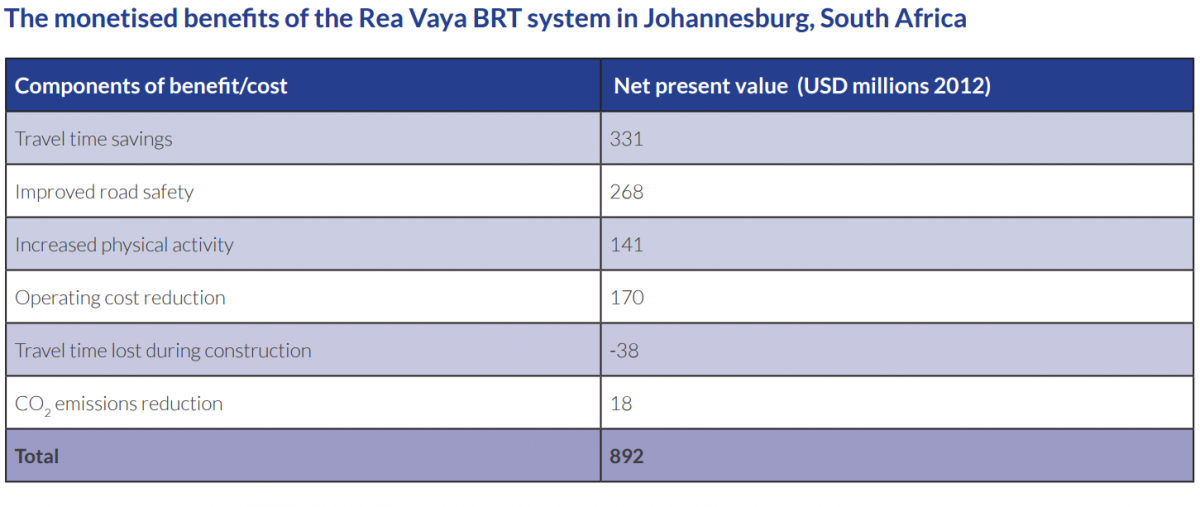Investing in Sustainable Transport Can Save Cities Up To $500bn by 2030, Says New Climate Economy Report
New research suggests that investing in public, non-motorized and low-emission transport can save cities up to $500 billion by 2030. In a working paper titled Accelerating Low-Carbon Development in the World’s Cities, the New Climate Economy project estimates that these investments can yield up to 2.5Gt CO2e in annual abatement by 2050, which is equivalent to 29% of potential urban abatement. Similarly, logistics improvements and freight vehicle efficiency and electrification can contribute an additional $110 billion in energy cost savings and 6% of urban abatement. Apart from committing to implement low-carbon urban transport strategies by 2020, the report also recommends that cities commit to prioritising policies and investments in building efficiency, renewable energy and efficient waste management.

Source: New Climate Economy Report 2015, Accelerating Low-Carbon Development in the World’s Cities. Analysis by the University of Leeds.
The New Climate Economy project is an international initiative undertaken by the Global Commission on the Economy and Climate (GCEC), which specializes in analyzing and communicating about the economic costs and benefits of acting on climate change. By creating a global partnership of research institutes, donor agencies, multilateral and regional development banks, and a variety of civil society organizations, the GCEC aims to provide independent and authoritative evidence on the relationship between actions which can strengthen economic performance and those which reduce the risk of dangerous climate change.
Using the Compact of Mayors as a framework for policy coordination, the New Climate Economy project proposes that cities take ambitious local action to avoid the substantial costs associated with hyper-motorized transport and sprawl while making significant contribution to global climate change mitigation. Globally, the transport sector is the fastest growing producer of GHG emissions. However, the sector also represents a third of the urban mitigation potential in the period up to 2050 so there is room to implement sustainable transport strategies for their emissions reduction potential.

Source: New Climate Economy Report 2015, Accelerating Low-Carbon Development in the World’s Cities. Analysis by the WRI EMBARQ.
In the shift towards low-carbon options, the adoption of bus rapid transit (BRT) represents an increasingly popular method of expanding and improving mass transit in cities. It requires low investment relative to light rail or metro rail transit. Johannesburg’s Rea Vaya BRT system, for instance, yields up to $900 million in travel time savings, improved road safety and CO2 emissions reductions. Cities can also implement congestion pricing to reduce emissions from driving and at the same time, finance investments in public transport.
Cycling is another mode of transport that yields significant savings, especially from reduced healthcare costs. This results from increased physical activity, reduced air pollution levels and reduced road fatalities. Thus, enhancing cycling infrastructure would enable cities shrink their carbon footprints and improve public health. It is estimated that Copenhagen’s planned Super Cycle Highways would yield up to 19% annual return on investment. Although it can be difficult to retrofit mature cities with bike lanes, developing country cities can leapfrog the hyper-motorization of transport by developing pedestrian and cycling networks.
The report also emphasizes the role of international collaboration in accelerating and scaling up climate action in the transport sector. International city networks like the C40 Cities Climate Leadership and Local Governments for Sustainability (ICLEI) are making the economic case for reducing emissions from transport because of the strong synergies between economic development and climate action in cities. Such cooperation boosts knowledge-sharing and capacity-building, mobilizes higher levels of investment and increase ambition through credible, monitoring, reporting and verification.
For the full report, please check here.